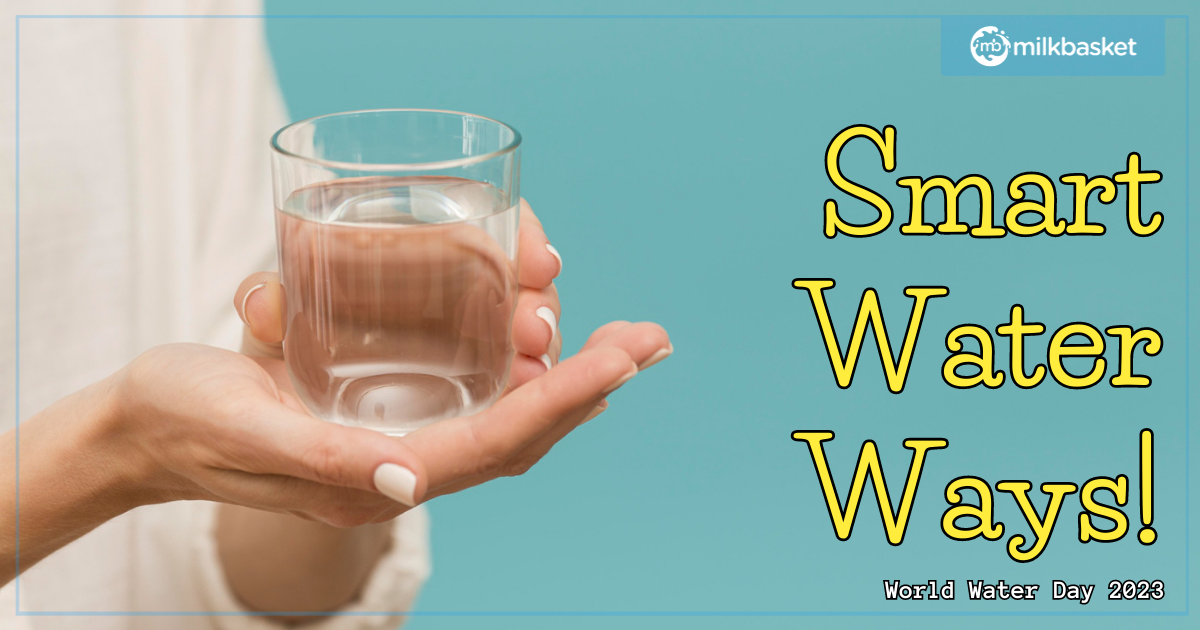4 Effective Ways To Recycle & Reuse Water At Home
Freshwater is essential for human survival, providing us with drinking water, sanitation, and hygiene. It is also used in agriculture, industry and energy production. It therefore is a critical component of ecosystems that support our planet’s biodiversity.
However, with less than 1% of the world’s water available for human use, it’s crucial that we use freshwater wisely and sustainably to ensure its availability for future generations. By protecting freshwater sources, using water efficiently, and reducing pollution, we can help ensure that everyone has access to clean, fresh water for years to come.
World Water Day 2023 – Accelerate Change
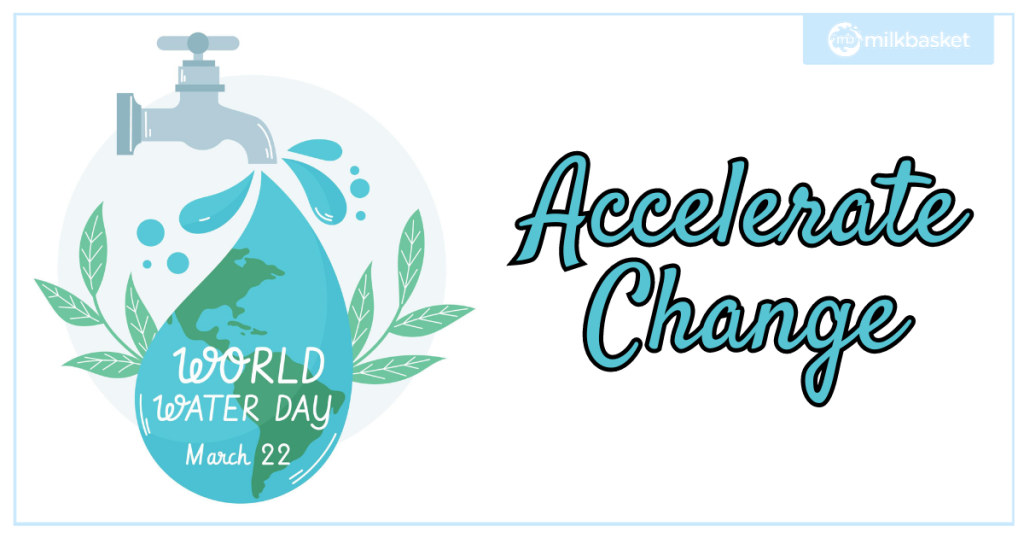
It’s World Water Day today, an annual event that is observed on March 22nd. It is a day designated by the United Nations to draw attention to the importance of freshwater and advocate for the sustainable management of freshwater resources.
The purpose of World Water Day is to raise awareness about the vital role that water plays in our daily lives, the challenges facing our freshwater resources, and the actions that we can take to protect and conserve them. Each year, World Water Day focuses on a specific theme related to water conservation and management.
The theme for this year’s event is ‘Accelerate Change’ where The focus of World Water Day 2023 will aim is to prompt governments, civil society, and individuals to speed up the progress towards achieving Sustainable Development Goal 6, which is to ensure that everyone has access to safe drinking water, sanitation facilities, and hygiene practices. This requires increased action, ambition, and innovation.
The overarching objective is to meet the commitments outlined in the 2030 Agenda for Sustainable Development and to recognize WASH as fundamental components across all sectors. Furthermore, the theme aims to explore ways to coordinate action among multiple sectors, enhance collaboration among stakeholders, and maximize impact.
Simple Ways To Recycle Water At Home
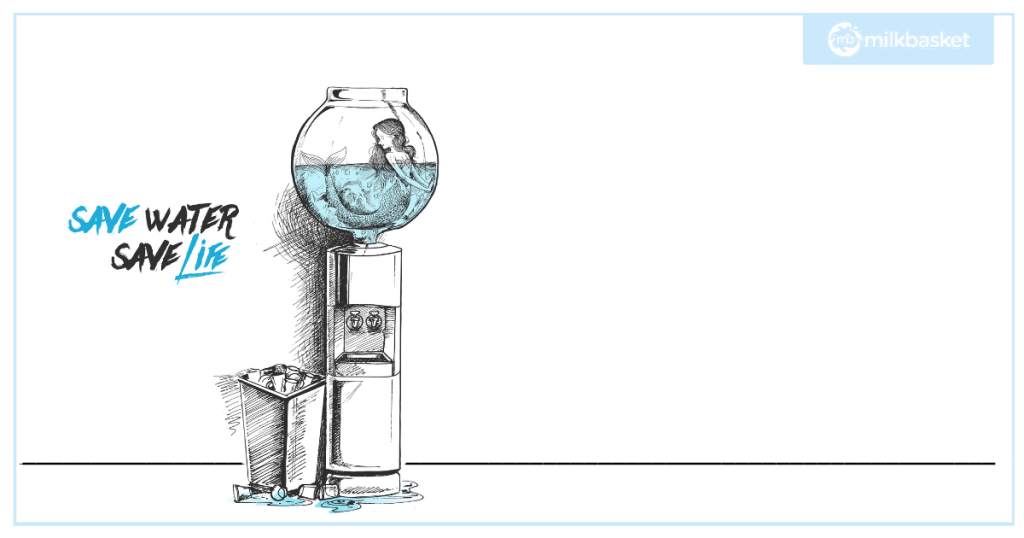
Recycling water at home is an effective way to conserve water resources, reduce wastewater discharge, save money, and provide environmental benefits. By adopting water recycling practices, we can all play a part in protecting our planet’s valuable water resources.
Recycling water at home is important for several reasons:
- Conserving Water Resources: Recycling water helps to conserve precious water resources. By reusing greywater (wastewater generated from sources like washing machines, showers, and sinks), we can reduce the amount of freshwater that is used for non-potable purposes like gardening and toilet flushing.
- Reducing Wastewater Discharge: Recycling water shall also help to reduce the amount of wastewater that is discharged into the environment. Wastewater can contain harmful pollutants and chemicals that can harm aquatic life and contaminate soil and groundwater. By recycling water at home, we can reduce the amount of wastewater that is released into the environment, thus helping to protect our natural resources.
- Saving Money: Recycling water at home can also help to save money on water bills. By reusing greywater, we can reduce the amount of freshwater that is used for non-potable purposes, which can result in lower water bills.
- Environmental Benefits: Recycling water can also have environmental benefits, such as reducing the amount of energy needed to treat and transport water. By recycling water, we can also reduce the demand for new water infrastructure, such as water treatment plants and pipelines.
Garden Irrigation With Greywater
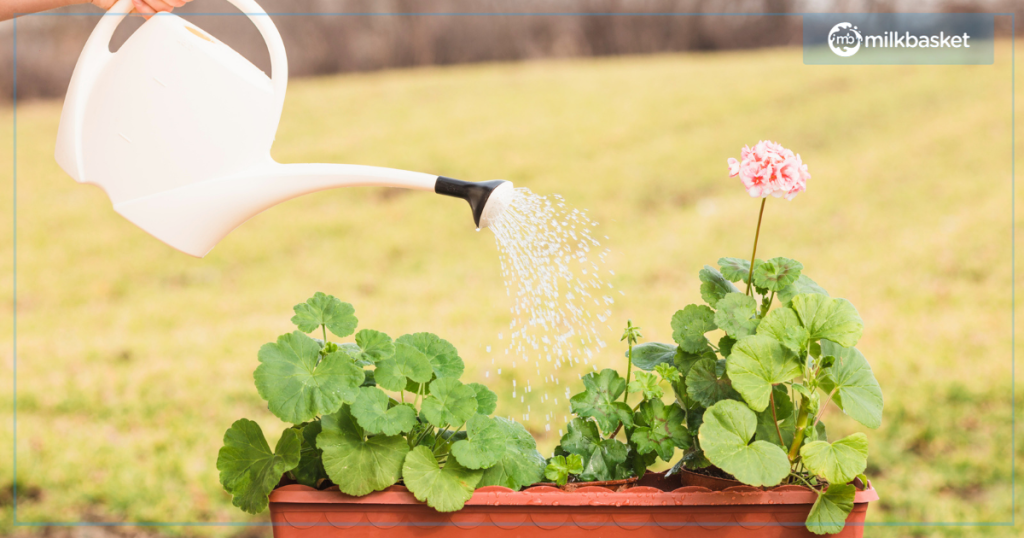
Greywater, also spelled graywater or grey water, is water that is generated from non-toilet plumbing fixtures in households, buildings, or industrial facilities. Greywater can come from sources such as sinks, showers, bathtubs, washing machines, and dishwashers. Greywater may contain traces of dirt, food, hair, and cleaning products.
Recycling bathwater and car wash water to irrigate a home garden is a great way to conserve water and reduce waste. Here are some benefits and things to consider when using recycled water for your garden:
- Nutrient-Rich Water: Bathwater and car wash water can contain nutrients that are beneficial to plants. The soap used in the bath can provide plants with nitrogen, which is an essential nutrient for growth. The dirty water from car washing can also contain small amounts of nutrients that can be beneficial to plants.
- Soil Health: Using recycled water for irrigation can also help to improve soil health. When using greywater, it is essential to use plant-friendly soap and avoid using water that contains chemicals or pollutants that can harm plants and soil.
- Water Quality: It is essential to use safe, clean water when recycling water for irrigation. It is recommended to avoid using water that contains harmful chemicals, such as bleach or heavy metals, as these can be toxic to plants and humans.
- Proper Distribution: Properly distributing recycled water is critical to ensuring that plants receive the appropriate amount of water. Using a drip irrigation system is the best way to distribute water, as it delivers water slowly and directly to the roots of plants.
Collecting Rainwater Through Roof Gutters
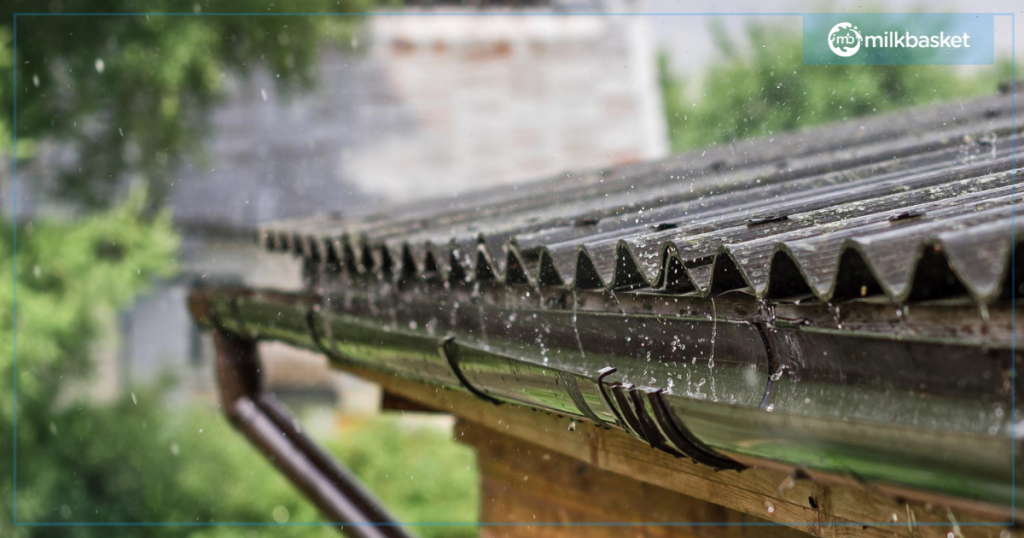
Collecting rainwater through roof gutters is a great way to harvest and conserve water for various purposes.It is an effective way to conserve water resources and reduce your water bill. Rainwater harvesting can supplement your household water needs, particularly for non-potable uses such as irrigation, washing clothes, and flushing toilets.
You can reduce your water bills and save money in the long run. Rainwater is free, and using it for non-potable purposes can significantly reduce your household water usage.This also helps reduce the demand for municipal water supplies, which can have environmental benefits. Reducing the demand for treated water can also help conserve energy and reduce carbon emissions associated with water treatment and transportation.
However, proper maintenance is critical when collecting rainwater. It is essential to regularly clean your gutters to ensure that debris and other contaminants do not enter the rainwater collection system. The collected water should be stored in a clean and safe container to avoid contamination.
In summary, collecting rainwater through roof gutters is an effective way to conserve water, reduce your water bill, and have environmental benefits. However, proper maintenance is essential, and it is important to check with local authorities to ensure that collecting rainwater is legal in your area.
Using Less Water In Flush Tanks
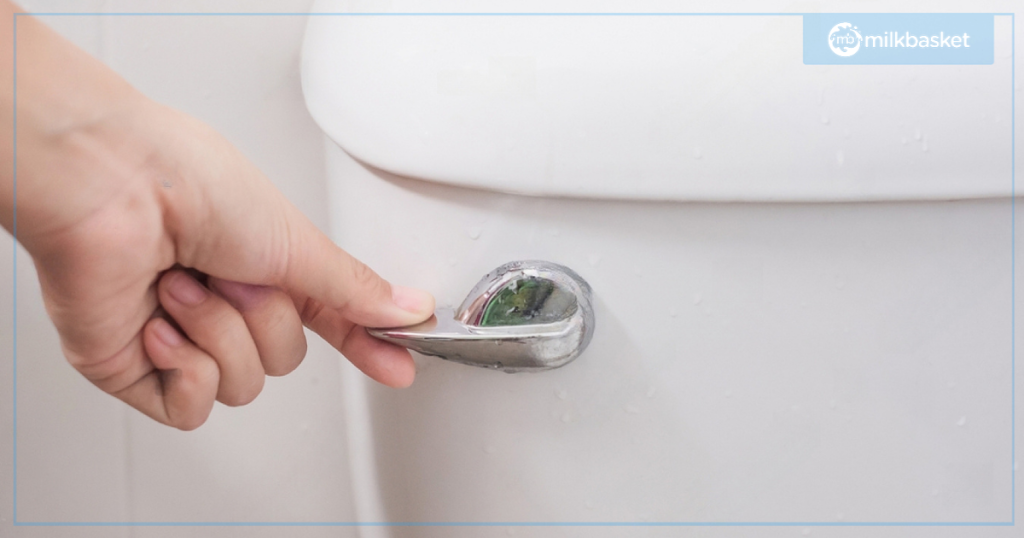
Flushing the toilet can use a significant amount of water, which can contribute to higher water bills and unnecessary water waste. However, there are a few things you can do to reduce the amount of water used when flushing:
- Install a low-flow toilet: Low-flow toilets are designed to use less water when flushing. They typically use around 6.05 liters of water per flush, compared to older toilets that can use up to 24 liters of water per flush.
- Place a displacement device in the toilet tank: Displacement devices such as a plastic bottle filled with water can be placed in the toilet tank to displace some of the water used for each flush. This can reduce the amount of water used for each flush without affecting the toilet’s performance.
- Consider dual-flush toilets: Dual-flush toilets have two buttons or handles that allow you to choose between a full flush and a partial flush, depending on the amount of waste being flushed. This can help reduce water usage when only a small amount of waste needs to be flushed.
Reducing Your Shower Time

It’s true that an average person may be wasting approximately 27 liters of water during a single shower in a metropolitan city. Taking quick showers is an effective way to save water because it reduces the amount of water used for bathing. Here are some ways in which quick showers can help save water:
- Reduced Water Usage: By taking shorter showers, you reduce the amount of water used per shower. On average, a 10-minute shower can use between 75 and 160 liters of water, while a 5-minute shower can use as little as 37-80 liters of water. Therefore, taking quick showers can save a significant amount of water over time.
- Lower Water Bills: By reducing the amount of water used per shower, you can also lower your water bills. This can be particularly helpful if you live in an area where water is expensive or in regions affected by drought or water scarcity.
- Environmental Benefits: Reducing water usage through quick showers can have environmental benefits by reducing the demand for freshwater resources. This can help conserve water resources, particularly in areas affected by water scarcity or drought.
- Time-Saving: Taking quick showers can also save time, which is particularly helpful in the morning when you’re in a rush to get ready for work or school.
This World Water Day, let’s try and incorporate these habits to save one of the most important resources available to man; fresh water! Our individual contribution might feel small, but in the larger picture we shall together save a tremendous amount of our precious water.
Cheers!
Categories
Popular Posts
-

Milkbasket – A Revolution In The Online Grocery Delivery Services In India
Spread the loveThere’s no denying the fact that the pandemic has drastically changed the way people spend their time online, buying everything through various online retail platforms with the convenience of home deliveries in India. Milkbasket, with it’s features has proven to be a revolution in the online grocery delivery services in India. While stepping […]
08 Jul 2022 read More... -

Milkbasket’s Latest DVC Campaign Is Out, And It’s Quirky And Relatable As Heck!
Spread the loveThe year 2021 was all about patience, resilience, and the grind it takes to get back up from a worldwide slump that the COVID-19 pandemic had hit us with. It made us all revisit our roots, recalibrate our priorities, and strengthen our foundations. With the better part of 2022 gone into slowly spreading […]
28 Sep 2022 read More... -

Nabhi Chikitsa or Belly Button Therapy: The Simple Health Secret You NEED To Know!
Spread the loveOur Navel or Belly Button (scientific name Umbilicus) is believed to be the centre of our life force. Most of us take it as just another part of our body not knowing its deep, thrilling world. In ancient Hindu healing practices, the Navel is considered to be the most important point of the […]
08 Sep 2022 read More... -

Your Trustworthy Guide To The Best Coffee Brands In India You Can Try
Spread the loveIf you’re a coffee lover, you know that coffee isn’t just a beverage. It’s a feeling, a good feeling. No, it’s a great feeling! One of the best feelings, in fact. Many songs and poems have been written to romanticize this delicious and invigorating drink. Although coffee in any form or recipe tastes […]
12 Aug 2022 read More...

